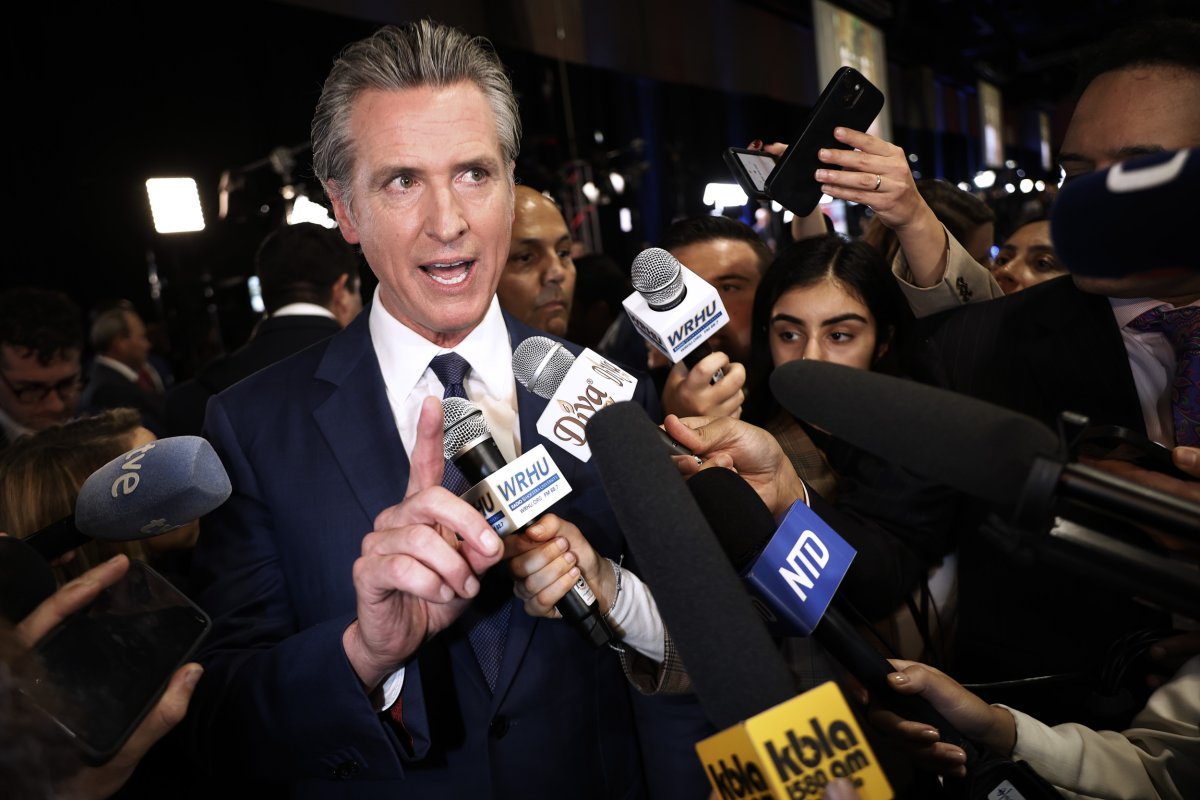Thunder Bay's Wake the Giant Music Festival has wrapped up for another year after welcoming hundreds of youth from northern communities who have moved to the city to attend high school. Wake the Giant began in 2019 as a movement to make Thunder Bay more inclusive for Indigenous youth, in recognition of the challenges they face leaving their families behind to complete their high school education. Headliners at this year's festival included Walk Off the Earth, Galantis and Arkells.
Before the festival, students were invited to attend workshops at Dennis Franklin Cromarty (DFC), the city's all-Indigenous high school, and participated in a scavenger hunt called the DFC Amazing Race to become more familiar with the city. Bess Legarde is a Fort William First Nation councillor. She says it's important for all members of the community to offer support to students from northern communities as they complete their schooling in Thunder Bay, Ont.

(Marc Doucette/CBC) "It's meant to provide basically a community connection to say that, 'Hey, all these people are in support of you guys being here and getting an education,' and how important it is to provide that safe space for them when coming to the city by themselves," said Bess Legarde, a Fort William First Nation councillor. More than 300 businesses and organizations in Thunder Bay have completed Wake the Giant Indigenous Culture and Inclusivity Training, in order to become more inclusive and practice anti-racism. Those that complete the course are given a 'Wake the Giant' decal for their window, to signify being a safe space for Indigenous people.
'People are here to help you' Breanne Meekis says people are surprised when they learn she had to move from Deer Lake First Nation — almost 600 kilometres away — to Thunder Bay to complete high school. "They just aren't aware, and that's not their fault," said Meekis, a jingle dress dancer at Wake the Giant. "I feel like this festival is just really about making people aware of the sacrifices that these students have to go through.
" Meekis has just started the Indigenous Transition Year Program at Lakehead University. She says the festival is one of her favourite events of the year, and she encourages those that are new to the city to be easy on themselves. "Don't be shy.
Don't be scared. People are here to help you," she said. "There's a lot of supports.
Don't be afraid to reach out to them and use them." Betty Carpick, a multi-disciplinary artist with Cree and Eastern European roots, said she understands how hard it is to settle into a place like Thunder Bay. "I'm also from a northern community, and when you come from somewhere else into a bigger city, you really feel alienated and alone," said Carpick.
Video Dennis Franklin Cromarty students got a chance to see and try out skateboarding as part of the Wake the Giant festivities in Thunder Bay, Ont. Video The Stanley Cup makes a surprise visit to Dennis Franklin Cromarty High School in Thunder Bay, Ont. She ran an art station at the festival, where participants used ink made from wild blueberries, mixed with soda ash and vinegar, to create chemical reactions on paper.
"I think it's important to have people around the students and to help them know that there's friends here that they can reach out to," Carpick said. "We can all make a better effort to make Thunder Bay a safer, friendlier, kinder town." Sharing Indigenous culture While Wake the Giant aims to help Indigenous students adapt to Thunder Bay, knowledge keeper Tom Morriseau Borg says it's also a way for city residents to learn more about Indigenous culture.
Morriseau Borg is a member of Red Rock Indian Band and is part of Dilico Anishinabek Family Care's Elders committee. He teaches land-based learning at schools in Thunder Bay, including Lakehead University. Tom Morriseau Borg is a knowledge keeper from Red Rock Indian Band who is part of Dilico Anishinabek Family Care’s Elders committee.
He says the Wake the Giant Music Festival gives people the opportunity to learn more about Indigenous culture. (Marc Doucette/CBC) "Our youth are a major concern today because of the way things are, and getting them back on the land, I think, is one of the avenues that we have to look forward to," he said. DJ Shub talks music, muses ahead of Wake the Giant Video First Nations students in Thunder Bay grabbed CBC mics and cameras to tell a great community art story This was his first time attending Wake the Giant, and what stood out to him the most was the opportunity for people to engage with Indigenous culture — through dancing, drumming, artisans, and community booths set up throughout the venue.
"It gets the community involved and actually see what we are like as First Nations people," Morriseau Borg said. "It's a beginning, it's a start — and hopefully, it gets better.".
Top
How the Wake the Giant Music Festival welcomes Indigenous high school students to Thunder Bay
Every year, hundreds of students from northern communities move away from home to attend high school in Thunder Bay, Ont. Here's how the Wake the Giant movement aims to welcome them to the community and make the city a safer, more inclusive space.










